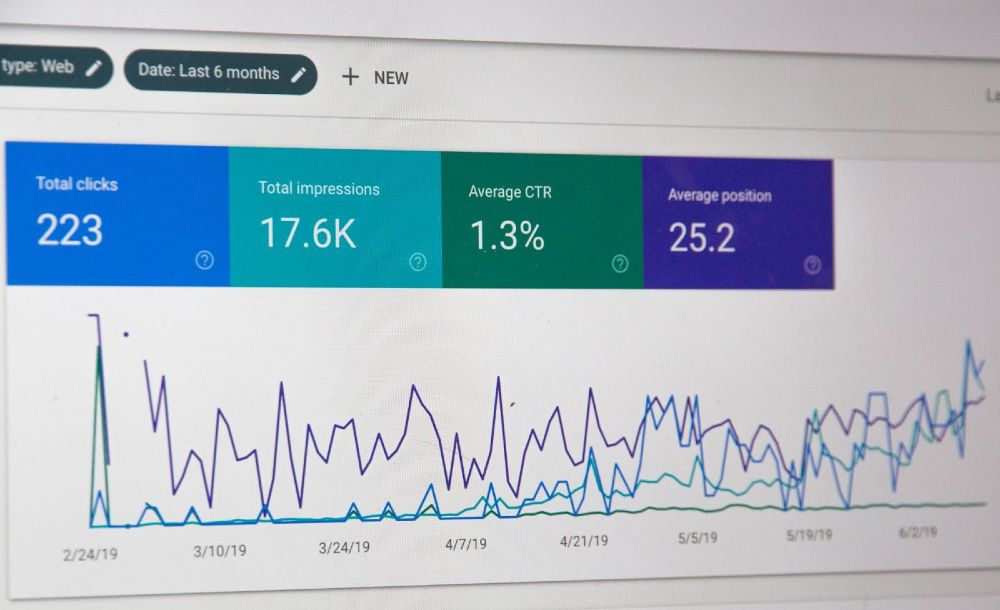Starting a business is exciting, but without the right marketing strategy, it can be hard to stand out online. Digital marketing gives startups the power to reach customers faster, build trust, and grow consistently — even with a small budget.
When Sarah launched her small fashion brand from her living room, she had great products but zero visibility. Her friends supported her at first, but sales were slow. Then she discovered how powerful digital marketing could be. By learning simple strategies like social media promotion, SEO, and email campaigns, she started reaching customers beyond her neighborhood. In less than six months, Sarah’s startup grew from a handful of buyers to hundreds of loyal customers.
Her story isn’t unique. Many startups fail not because their ideas aren’t good, but because nobody knows they exist. Digital marketing changes that. It helps you get noticed, build trust, and turn your ideas into income.

When Tunde started his small tech startup, he thought having a great product was enough. He poured his energy into building the perfect app — sleek design, useful features, everything. But weeks turned into months, and hardly anyone downloaded it. He realized something was missing: visibility. His brand existed, but no one knew it.
That’s when he discovered digital marketing. With a clear online strategy, combining social media, SEO, and storytelling, he started to attract attention. People began to engage, downloads grew, and partnerships followed. What changed? Not the product, but the way he reached people.
That’s the power of digital marketing for startups. It levels the playing field. You don’t need a huge budget to compete; you just need strategy, creativity, and consistency. Whether you’re selling handmade crafts, launching a SaaS tool, or running a local service, digital marketing helps you get noticed, trusted, and chosen.
In this guide, you’ll learn practical digital marketing tips that can help your startup grow online, attract the right audience, and stand out in a competitive market.
10 Essential Digital Marketing Tips Every Startup Should Know
Learn 10 practical digital marketing tips to help startups grow online, build trust, attract customers, and increase sales effectively.
1. Start with a Clear Marketing Strategy
Before diving into social media or running ads, take time to define your direction. A solid marketing strategy keeps you focused and ensures every action aligns with your business goals.
Begin by answering key questions:
- Who is your ideal customer?
- What problems do they face, and how does your product or service solve them?
- What makes your brand different from competitors?
Once you understand these, choose your digital channels — whether it’s social media, search, or email — based on where your audience spends time. A well-thought-out plan saves money, reduces confusion, and helps you measure progress effectively.
2. Focus On Good User Experience
Your audience is the heartbeat of your business. Every click, scroll, or visit on your website is a chance to leave a lasting impression and that impression determines whether people stay or leave. A great user experience (UX) isn’t just about having a beautiful website; it’s about creating a space that feels simple, intuitive, and enjoyable to use.
When visitors land on your site, they should instantly understand what you offer, how it benefits them, and where to go next. If your website loads slowly, looks cluttered, or confuses users, you’ll lose potential customers before they even get to know your brand.
For startups, designing an effective digital marketing strategy starts with understanding your audience deeply. Ask yourself:
- What are their needs and challenges?
- How do they consume information?
- What tone or visuals resonate with them most?
By learning what matters to your target demographic, you can create content and design experiences that both inform and inspire. This connection goes beyond visuals — it’s about delivering real value, clarity, and emotion through every touchpoint.

Over time, consistently offering a positive and helpful experience builds familiarity and trust. It shapes how people perceive your brand and creates loyal customers who keep coming back — not just because of what you sell, but because of how you make them feel.
3. Use SEO to Get Found Online
Search Engine Optimization (SEO) helps your business appear on Google when people search for what you offer. This is one of the most sustainable ways to attract traffic without constantly paying for ads.
Start by researching relevant keywords — terms your potential customers use to find products or services like yours. Use tools like Google Keyword Planner or Ubersuggest for this. Then, include these keywords naturally in your website copy, headings, blog posts, and metadata.

Also, focus on local SEO if you serve specific areas. Add your business to Google My Business, collect reviews, and use location-based keywords. The goal is to make it easy for customers to find you when they’re looking for what you sell.
4. Create Content That Solves Problems
Great content drives great results. Your audience isn’t just looking for products — they’re looking for solutions. The more valuable and relevant your content is, the more likely people are to trust your brand.
Write blog posts, make videos, or share tips that address common questions in your industry. For instance, if you sell home appliances, write about “How to Choose an Energy-Efficient Refrigerator” or “5 Mistakes to Avoid When Buying a Washing Machine.”

Consistency is key. Post regularly and ensure each piece of content adds value. Over time, this builds authority and positions your startup as a trusted voice in your niche.
5. Leverage Social Media to Build Relationships
Social media allows startups to connect with their audience directly and it’s more than just posting pictures. It’s about storytelling and engagement.

Pick the right platforms for your business. For example, Instagram works well for visual brands, LinkedIn is ideal for B2B, and Facebook helps reach a wide audience. Post a mix of educational, entertaining, and promotional content.
Encourage conversations, respond to comments, share behind-the-scenes moments, and celebrate customer stories. Social media is about relationships, not just reach. When people feel seen and valued, they become loyal advocates for your brand.
Looking for ways to market your content via video making AI, look no further as FlexClip got you covered
Read also:
- Why are remarketing ads important
- How to setup Instagram Business Page
- How to link WhatsApp to Instagram Business
- How to pay for Facebook Ads in Naira
- Why your church needs a website
- 6 digital marketing tips for small business
6. Invest in Paid Advertising Wisely
Paid ads like Google Ads, Facebook Ads, or Instagram promotions help you reach your target audience quickly. But you don’t need a massive budget to see results.
Start small with clear goals: do you want website traffic, sign-ups, or sales? Use targeting tools to reach the right demographics and locations. Test different ad copies, images, and calls to action to see what performs best.
Remember, paid ads work best when supported by strong organic content. Ads bring attention, but your content and website keep people engaged and convert them into paying customers.
7. Build and Nurture an Email List
Email marketing is one of the oldest yet most powerful tools for startups. It gives you a direct line to your audience — no algorithms, no gatekeepers.
Start by offering something valuable to encourage sign-ups like a discount, free guide, or useful checklist. Once people subscribe, send regular newsletters that educate, inform, and inspire them.
Don’t just sell in every email. Share stories, tips, or behind-the-scenes updates that make your brand relatable. Over time, a well-nurtured email list becomes one of your biggest business assets.
8. Track and Measure Everything
In digital marketing, data is your best friend. It shows what’s working and what’s not. Without tracking results, you’ll keep spending without knowing where your returns come from.
Use tools like Google Analytics, Meta Insights, or HubSpot to measure key metrics such as traffic, engagement, and conversions.
If an ad isn’t performing, tweak the copy or targeting. If a blog post drives traffic, create more around that topic. The goal is continuous improvement — not perfection.
9. Build Trust and Reputation Early
Startups often face skepticism because they’re new. That’s why building credibility is crucial. Display testimonials, show customer feedback, and feature case studies or success stories.
If you’re just starting out, gather reviews from your first few customers and showcase them proudly. People are more likely to buy when others vouch for you.
Also, be transparent about pricing, respond quickly to messages, and maintain consistent branding across all platforms. Trust takes time to build but can be lost in a second — handle it carefully.
10. Keep Learning and Adapting
The digital landscape changes every day — algorithms shift, tools evolve, and consumer behavior adapts. What worked last year might not work now.
Stay updated through online courses, marketing blogs, or webinars. Follow industry leaders and observe what successful startups in your niche are doing.
Most importantly, be flexible. Experiment, learn from mistakes, and adjust your strategy. The startups that grow fastest are the ones that keep learning and adapting without fear of change.
Final Thoughts
Digital marketing gives startups the power to compete with larger brands — not through size, but through strategy. You don’t need to do everything at once. Start small, stay consistent, and focus on building real relationships with your audience.
Over time, your visibility will grow, your reputation will strengthen, and your brand will become a trusted name in your industry.